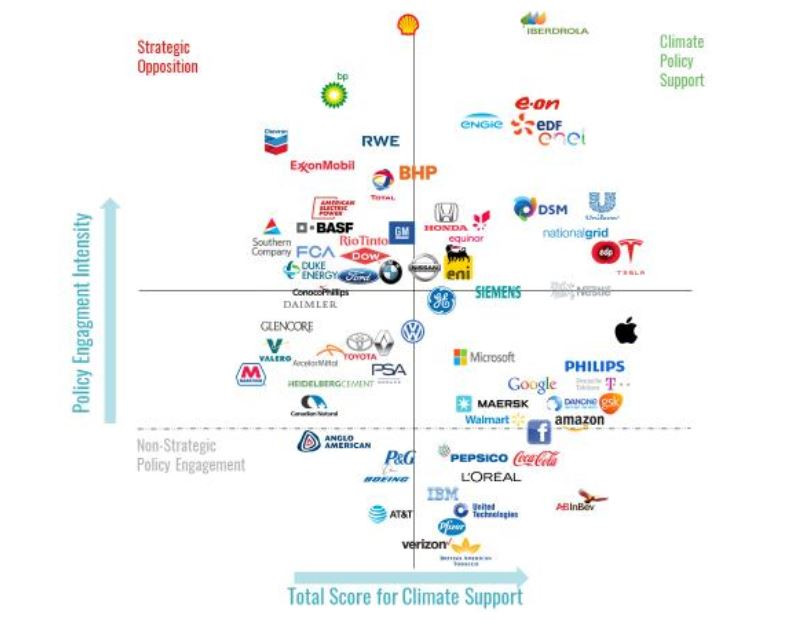Major German companies among world's most active anti-climate action lobbyists - study
Clean Energy Wire
German car manufacturers Daimler and BMW, utility RWE and building materials company HeidelbergCement are among the world's most influential lobbyists against climate policy, shows a study by the non-profit research group InfluenceMap. German chemicals company BASF ranks as the fifth most negatively influential on climate policy globally. InfluenceMap's analysis combines metrics representing companies' economic and political clout, level of engagement and corporate climate positions over the last four years. On the positive end of the scale, German utilities E.ON and EnBW along with telecommunications company Deutsche Telekom were found to support climate policy in line with the Paris Agreement.
The study was based on over 100,000 pieces of evidence on 250 companies and 75 trade associations, such as comments on policy and regulatory consultations, showing that even corporations with "strong climate goals for their own companies" undermined these through lobbying activities. Although German car manufacturers BMW and Daimler have boosted their electric vehicle strategies, InfluenceMap's analysis found they had also pursued a "strategy to control and delay the regulatory agenda on vehicle emissions and electric vehicles" over the last four years. While BASF has recently presented a low-carbon strategy, saying it wants to become the sector’s first company to decouple production growth from emissions, InfluenceMap's analysis found the company to have opposed German energy transition policy and emissions trading reforms at the European level.
Industry is Germany's second largest emitter of greenhouse gas emissions – trailing the energy sector – and CO2 output has not fallen over the last ten years. Around half of those emissions are caused by companies making steel, cement and chemicals. The German government's newly adopted Climate Action Law sees industry greenhouse gas emissions falling to no more than 140 million tonnes of CO2 equivalents by 2030, leaving 56 million tonnes to be reduced compared to 2018 levels.


